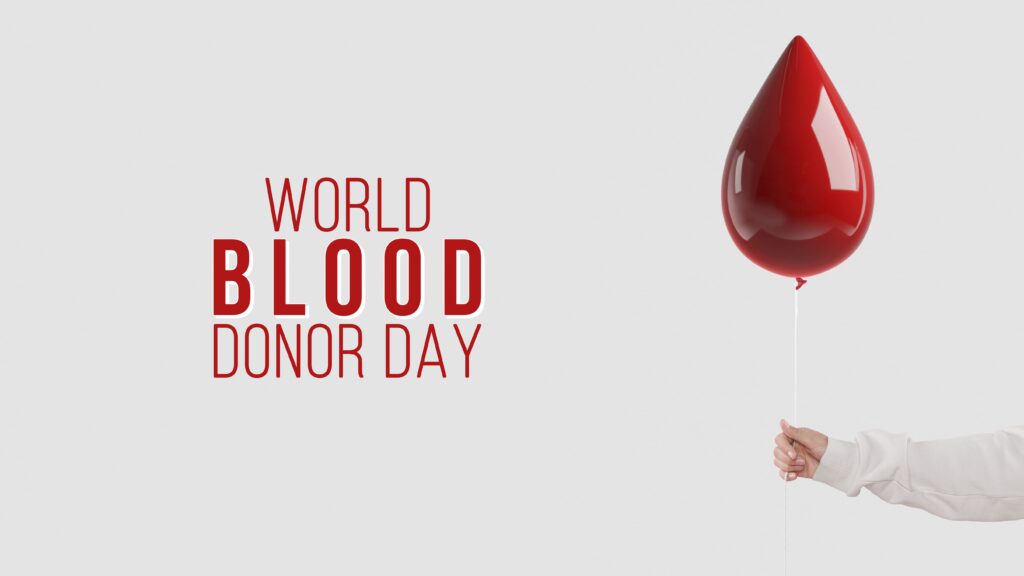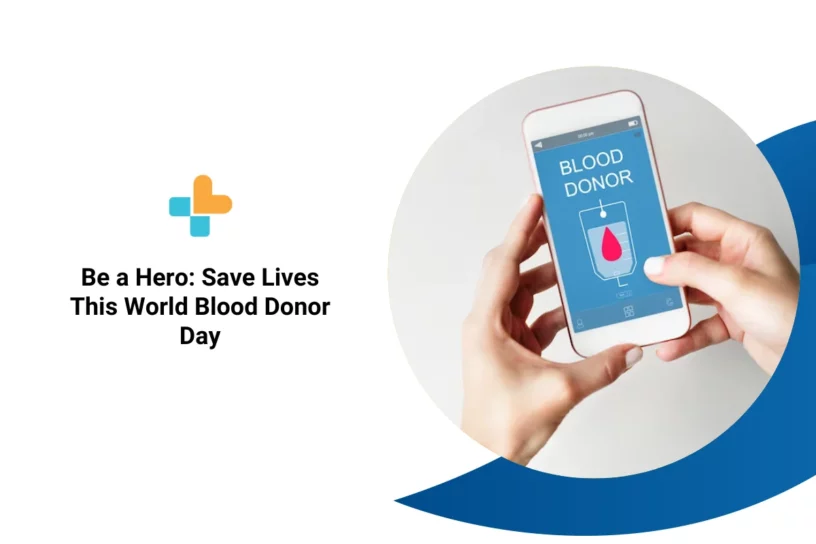Imagine yourself in a medical emergency when you’re asked to source the correct blood type from a donor. It’s a harrowing situation no one would want to go through.
Blood is a connective tissue that can neither be substituted, nor it cannot be created or produced. This is what makes it a precious resource.
Patients needing a blood transfusion rely only on the generosity of blood donors.
This World Donor Day, let’s all resolve to donate blood regularly. Keep reading to learn how to save lives by donating your blood.
Why is Donating Blood Important
Donating blood is important because it can help save other people’s lives. A healthy person can donate blood every three months.
By donating blood, you help the following people:
- Patients who have blood loss following major surgery
- Individuals who have lost blood due to a gastrointestinal bleed
- Women experiencing major problems during pregnancy or delivery
- Cancer patients
- Thalassemia and sickle cell disease patients who require frequent blood transfusions
Our country experiences 1,200 traffic accidents a day and 60 million trauma-induced procedures. Blood transfusions are required for 230 million major operations, 331 million cancer-related treatments such as chemotherapy, and 10 million pregnancy problems.

Who Is Eligible To Donate Blood in India?
Healthy adults between the ages of 18–60 are eligible to donate blood in India. Most people can donate blood as long as they have no life-threatening ailments. Also, healthy adults who’ve recently had a tattoo or piercing cannot donate blood for six months after their procedure.
Here are other qualifications you should meet to donate blood:
- Weigh at least 50 kg
- Haemoglobin level must be at least 12.5.
- Pulse rate must be between 50 and 100mm per second, with no abnormalities
- Blood pressure levels should be normal
- Body temperature should be normal
Who is Not Eligible to Donate Blood?
The following people are not eligible to donate blood:
- Patients who have had a cardiac arrest, hypertension, renal illness, or epilepsy
- Anyone who has consumed alcohol less than 24 hours before the procedure
- Those with HIV
- People with a cold, the flu, a sore throat, or another illness
- Pregnant women and nursing mothers
People with diabetes may donate blood, but only if they meet certain requirements.
Blood Donation: Potential Side Effects
Following a blood donation, you may experience some brief adverse effects. Here are some of the symptoms and how you can alleviate them:
- If you notice bleeding from the area where you donated, elevate your arm and apply pressure for a few minutes.
- If you are dizzy, lie down for a few minutes until you feel better.
- If you’re bruising, apply an ice pack to that area.
Make sure you hydrate with increasing amounts of water for 24–48 hours and avoid strenuous physical activity for a day after donating blood.
Busting Myths About Donating Blood
Here are some common myths regarding blood donation and the truth.
Myth #1: Donating Blood is Painful
The only discomfort you’ll experience is the short sting of the needle as it’s inserted.
The region may be slightly painful afterwards, but any discomfort you experience is insignificant in comparison to the noble act of blood donation.
Myth #2: Donating Blood with my Medications is Dangerous
Most drugs do not interfere with the procedure of donating blood. However, it’s imperative to check with your doctor ahead of time to confirm whether you are suitable for blood donation.
Myth #3: Donating Blood Will Induce Weakness
Approximately one pint of blood is taken during a blood drive.
The average adult contains around 10 pints of blood, and after donating, your body produces new blood to replace what was lost.
Hydrate well, and your body will restore lost fluids within a few hours and red and white blood cells within a few days.
Myth #4: I am Susceptible to HIV and Other Illnesses
For each donation, a new sterile needle is used and quickly discarded. Strict infection control practices are followed to make this process safe and reduce the danger of infection for the donor.
Donate Blood With Ayu Health: India’s Leading Healthcare Provider
Donating blood is a noble act and can help save many lives.
By understanding the importance of donating blood and busting the myths associated with it, we hope that you consider donating blood at some point so that those less fortunate can have a chance at recovery or survival.
If you’re interested in donating blood, we invite you to visit one of Ayu Health’s blood banks. Please contact us at +91 6366-100-800 or visit our website.
Also Read : Can Diabetics Donate Blood? Understanding the Guidelines and Requirements
Our Hospital Locations
General Surgery Hospitals in Chandigarh | General Surgery Hospitals in Bangalore | General Surgery Hospitals in Jaipur | General Surgery Hospitals in NCR | General Surgery Hospitals in Hyderabad
Our Doctors
General Surgery Doctors in Chandigarh | General Surgery Doctors in Bangalore | General Surgery Doctors in Jaipur | General Surgery Doctors in NCR | General Surgery Doctors in Hyderabad
References:
https://pubmed.ncbi.nlm.nih.gov/3684133/
https://www.ncbi.nlm.nih.gov/pmc/articles/PMC9286895/
https://pubmed.ncbi.nlm.nih.gov/32134130/
https://ayu.health/blog/can-diabetics-donate-blood/
https://pubmed.ncbi.nlm.nih.gov/27453037/
About the Author

Dr. S. Goel
Dr. S. Goel is a renowned Internal Medicine Specialist currently practicing at Ayu Health, Bangalore. He is a Specialist in Internal Medicine, Diabetes HTN, Paediatric Care, and Family Medicine.




